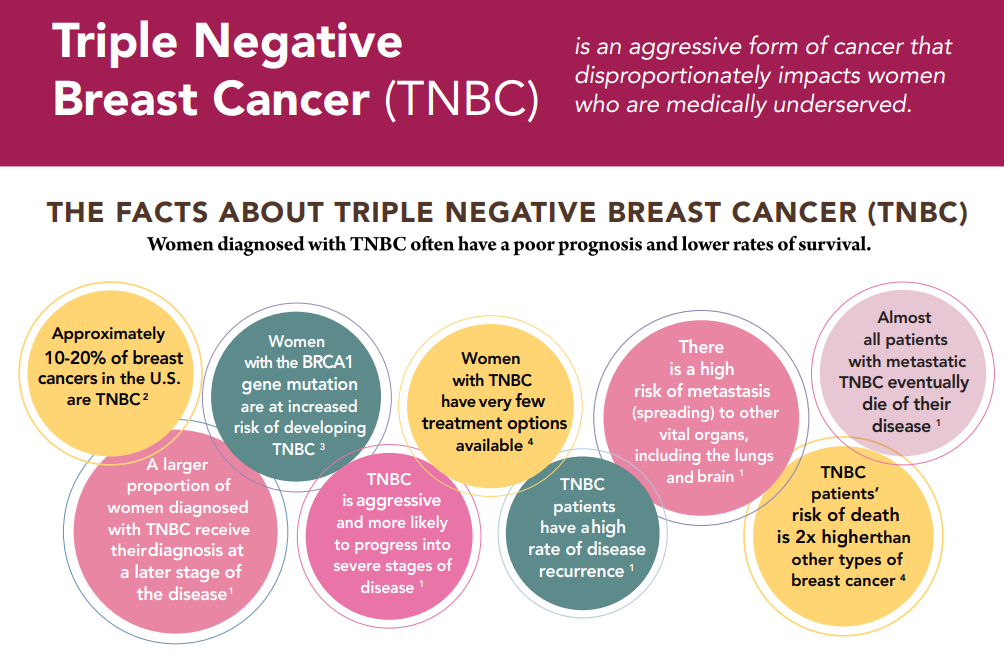Triple negative breast cancer (TNBC) is a subtype of breast cancer, named because TNBC tumors test negative for estrogen receptors, progesterone receptors, and human epidermal growth factor receptor-2 (HER2). Many breast cells have hormone receptors—proteins that are turned on or off by specific hormones such as estrogen, progesterone, etc. Without the three most common receptors, TNBC cells grow and change without any input from those hormones, making them harder to treat.
Triple negative breast cancers are particularly aggressive and are often associated with worse outcomes, early relapse after standard chemotherapy, a high frequency of metastasis, and higher mortality rate compared to other breast cancer subtypes. TNBC is also more common in young women—those under the age of 40 diagnosed with breast cancer are nearly twice as likely to have TNBC than women aged 50-64.¹
To learn more about triple negative breast cancer, please visit:
[TNBC Foundation] and [Breastcancer.org.]




